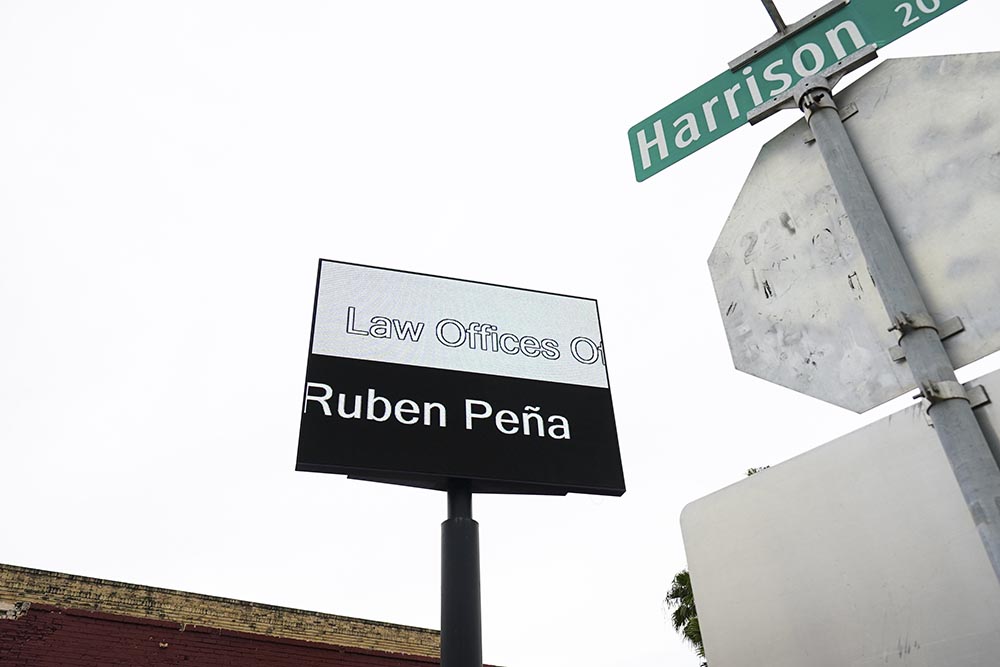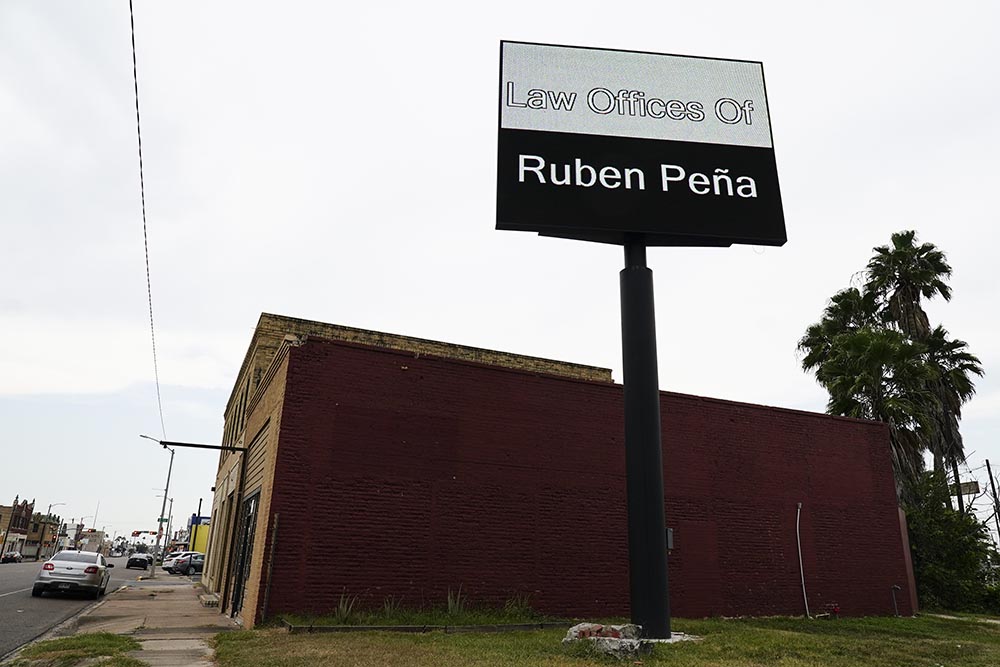HARLINGEN — Under his towering digital billboard, Ruben Peña’s fight against City Hall is helping pave the way for more property owners to put up electronic signs to advertise their businesses.
When he flipped on its switch in February 2020, the city’s first mammoth electronic sign began flashing advertising over rooftops across downtown’s La Placita business district, irking and tantalizing residents.
At City Hall, officials issued citations, warning Peña, an attorney, to stop advertising on the 35-foot-tall digital billboard looming over his office building at 222 W. Harrison Ave.
Meanwhile, Laura Peña, his daughter, had filed a lawsuit against the city, arguing her father’s freedom of speech gave him the constitutional right to advertise on the massive digital sign for which City Hall mistakenly issued a permit.
Now, federal courts are standing behind similar cases.
“I was fortunate that the law ended up being favorable to us,” Peña said Tuesday. “The facts of the law were on our side.”
City Hall opening doors for businesses to put up digital signs
At City Hall, officials are amending the city’s ordinance to reflect the changes in law.
“Amendments to the regulations regarding off-premises signs are necessary to remove all reference to content-based regulations to conform to evolving standards to accommodate First Amendment protections under the United States Constitution,” officials wrote as part of the Sept. 15 city commission meeting’s executive summary.
This month, officials began scraping parts of the ordinance restricting businesses from putting up signs to advertise along Harrison and other roadways designated as state highways.
“It’s good to be able to bring change to town,” Peña said.
Meanwhile, more business owners want to put up their own digital signs.
“Digital signs are being used more so we updated our sign ordinance to reflect requests from businesses coming into town,” City Manager Dan Serna said.
After his federal lawsuit’s settled, Peña plans to launch more community-based advertising.
“I’m keeping it very low key,” he said. “I’m looking more for community businesses and we’ll be promoting local businesses as part of our community outreach.”

City mistakenly issues sign permit
The case dates back to October 2019, when the city’s building inspection’s department issued AAA Electronic Signs, the company which sold Peña the sign, a permit allowing its installation next to his office.
More than two months later, Xavier Cervantes, the city’s planning director, told Peña the city had mistakenly granted the permit for the sign whose size violated an ordinance, Laura Peña wrote in her lawsuit filed in September 2020.
During a telephone call, Cervantes told Peña “the city had mistakenly given him the permit for a sign that had a size in excess of the permitted sign ordinance,” her lawsuit states.
“Cervantes requested Peña to have the sign reduced to conform with the ordinance. As the sign had already been ordered and Cervantes did not have authority to pay for the replacement or offer to pay for the sign Peña had already ordered, Cervantes conceded that the city had made a mistake and Peña could proceed,” her lawsuit states.




